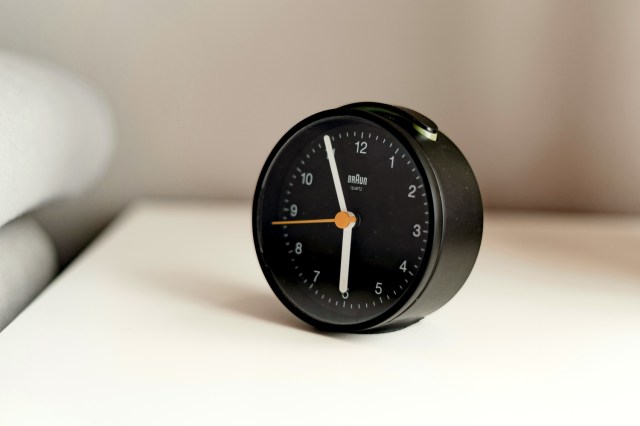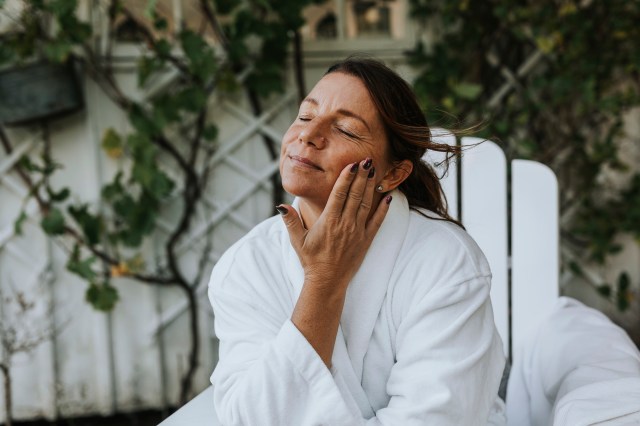Many mornings, it’s all too easy to roll over in bed and hit the snooze button. Whether it was a late-night work session, an evening out, or a binge-worthy television show that kept you up, you might regret it in the morning when your alarm clock starts beeping. While pressing the snooze button several times is tempting, it might be one of the worst things you could do to start your day. Staying in bed a little longer can feel great in the short term, but the long-term impacts aren’t worth it. Find out why serial snoozers should rethink their morning habits and give the button the boot.
All featured products and deals are selected independently and objectively by the author. Better Report may receive a share of sales via affiliate links in content.
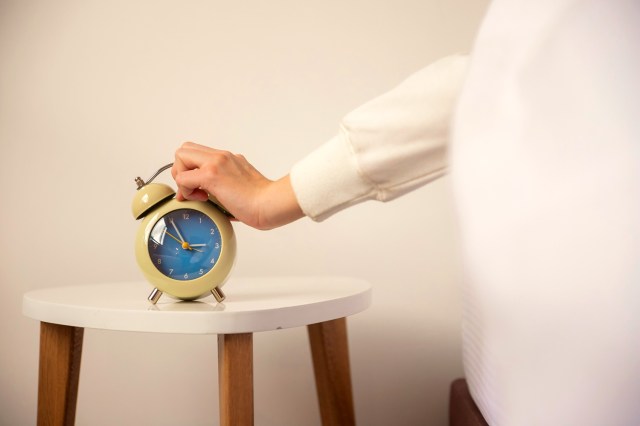
Hitting the Snooze Button Disrupts Your Sleep Cycle
Getting enough sleep at night is vital to our health. Unfortunately, choosing to snooze can interrupt the sleep cycle, especially if you fall back asleep after pressing the snooze button. Waking up to an alarm stops your sleep cycle, and falling back asleep again restarts it, which can confuse your body. The sleep cycle has four stages: 1 NREM (lightest stage), 2 NREM (second-lightest stage), 3 NREM (deep sleep), and REM (before you wake up). On average, the first sleep stage only lasts between one and seven minutes, so you have a high chance of falling back into a deeper sleep state when your alarm goes off again, leaving you more tired and groggy than you were before.
If you’re woken up during one of the deeper stages of sleep, you have a higher chance of fatigue. The exhaustion experienced after waking from a deep sleep is called sleep inertia, which can last up to 30 minutes and cause mental fog. When you decide to hit “snooze,” your body is caught in this short-lived state of grogginess. A 2022 study supports this idea, revealing that participants who used the snooze feature experienced prolonged sleep inertia compared to those who didn’t snooze. By getting up with your first alarm and denying yourself the opportunity to fall into a deep sleep again, you could save yourself from unnecessary drowsiness, even if it doesn’t feel like it when your alarm starts blaring.
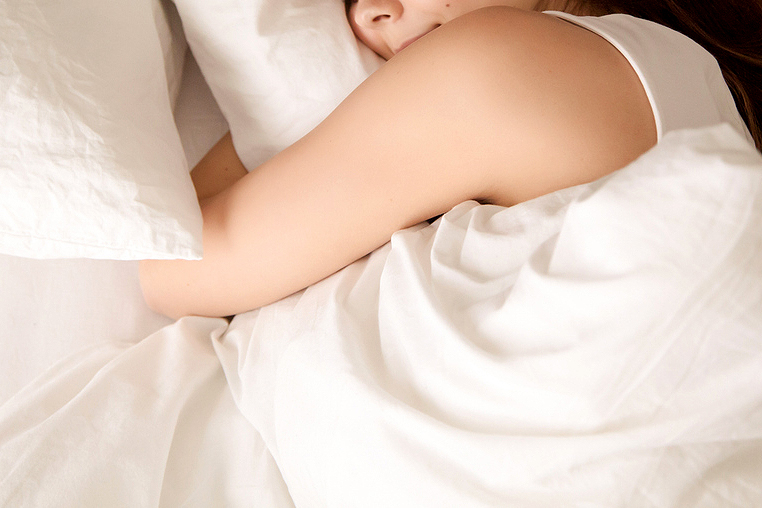
Creating Healthy Sleep Habits
To cultivate a healthy sleep cycle, begin with good sleep hygiene. According to the CDC, consistency is one of the best sleep habits. This means finding a sleep schedule that works for you and sticking to it. Find a wake-up time that fits your daily schedule and set your alarm for that time. Your body will get used to following a more consistent cycle, and you should be able to wake up more easily.
Other important aspects of sleep hygiene include having a comfortable environment (quiet, dark, not too warm), removing electronics from the bedroom, exercising enough, and avoiding caffeine and alcohol in the evenings. Many other factors can impact sleep quality, but focusing on these essentials is a great starting point to reduce your need to hit snooze.
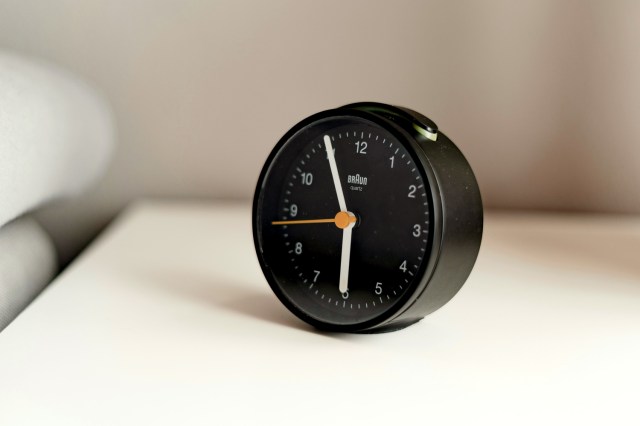
Pro Tip: Move Your Alarm Clock
If you feel like you’re destined to snooze forever, try this alarm clock hack. Set your alarm to the latest possible time that you must get up. This might sound scary at first, but it will pay off. Before bed, put the alarm clock on the opposite side of the room from your bed. This way, you must crawl out of bed to turn it off, forcing yourself to start your day. Doing this will give you as much uninterrupted deep sleep as possible without multiple alarms breaking it up.
Featured Image Credit: Julian Hochgesang/ Unsplash
More From Our Network
Better Report is part of Inbox Studio, which publishes content that uplifts, informs, and inspires.
